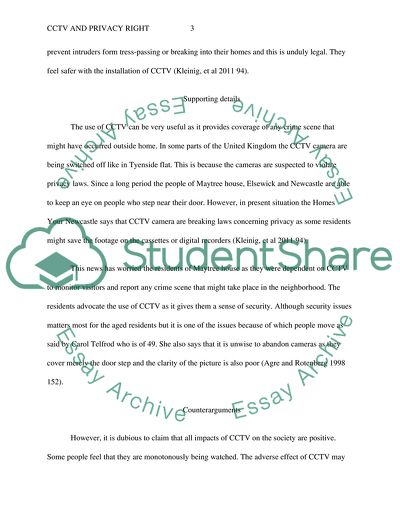Cite this document
(Does The Use Of CCTV Represent An Attack On The Right To Privacy Case Study - 1, n.d.)
Does The Use Of CCTV Represent An Attack On The Right To Privacy Case Study - 1. https://studentshare.org/technology/1779476-how-far-do-you-agree-with-the-claim-that-cctv-represents-an-attack-on-the-right-to-privacy
Does The Use Of CCTV Represent An Attack On The Right To Privacy Case Study - 1. https://studentshare.org/technology/1779476-how-far-do-you-agree-with-the-claim-that-cctv-represents-an-attack-on-the-right-to-privacy
(Does The Use Of CCTV Represent An Attack On The Right To Privacy Case Study - 1)
Does The Use Of CCTV Represent An Attack On The Right To Privacy Case Study - 1. https://studentshare.org/technology/1779476-how-far-do-you-agree-with-the-claim-that-cctv-represents-an-attack-on-the-right-to-privacy.
Does The Use Of CCTV Represent An Attack On The Right To Privacy Case Study - 1. https://studentshare.org/technology/1779476-how-far-do-you-agree-with-the-claim-that-cctv-represents-an-attack-on-the-right-to-privacy.
“Does The Use Of CCTV Represent An Attack On The Right To Privacy Case Study - 1”. https://studentshare.org/technology/1779476-how-far-do-you-agree-with-the-claim-that-cctv-represents-an-attack-on-the-right-to-privacy.


